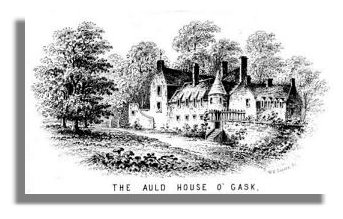 Carolina Oliphant (Lady Nairne) was born in the "auld hoose of Gask," Perthshire in 1766. She was from an old Perthshire family, which had settled there in the 13th century. She was named Carolina in memory of Prince Charles Edward Stuart, as her father had been a staunch Jacobite. Her striking beauty and pleasing manners earned for her the name of the "Flower of Strathearn." Her husband became a Baron and so she later became Lady Nairne.
Carolina Oliphant (Lady Nairne) was born in the "auld hoose of Gask," Perthshire in 1766. She was from an old Perthshire family, which had settled there in the 13th century. She was named Carolina in memory of Prince Charles Edward Stuart, as her father had been a staunch Jacobite. Her striking beauty and pleasing manners earned for her the name of the "Flower of Strathearn." Her husband became a Baron and so she later became Lady Nairne.
She brought out a collection of national airs set to appropriate words and contributed a large number of original songs, eventually becoming one of the most prolific of Scottish song-writers. The song below was one of the first she wrote in Scots.
The Pleughman
There's high and low, there's rich and poor,
There's trades and crafts enew, man;
But, east and west, his trade's the best,
That kens to guide the pleugh, man.Chorus
Then, come, weel speed my pleughman lad,
And hey my merry pleughman;
Of a' the trades that I do ken,
Commend me to the pleughman.His dreams are sweet upon his bed,
His cares are light and few, man;
His mother's blessing 's on his head,
That tents her weel, the pleughman.Chorus
The lark, sae sweet, that starts to meet
The morning fresh and new, man;
Blythe though she be, as blythe is he
That sings as sweet, the pleughman.Chorus
All fresh and gay, at dawn of day
Their labours they renew, man;
Heaven bless the seed, and bless the soil,
And Heaven bless the pleughman.Chorus
Meaning of unusual words:
Pleughman = Ploughman



